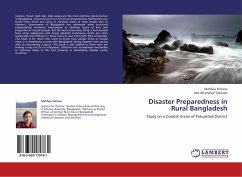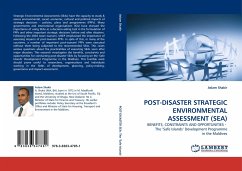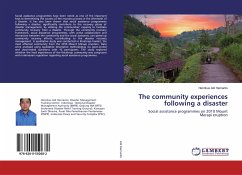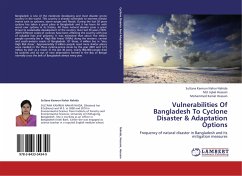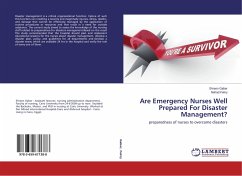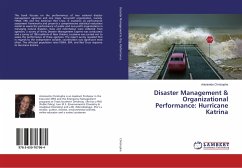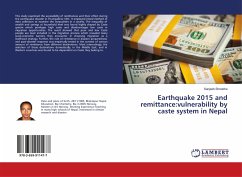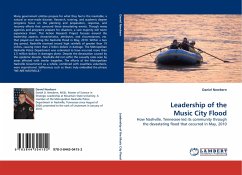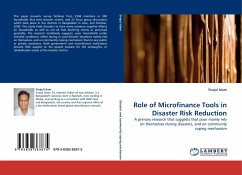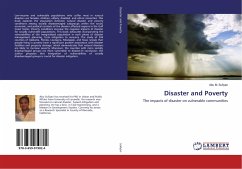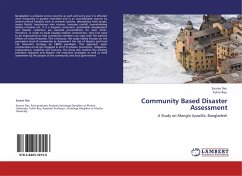
Community Based Disaster Assessment
A Study on Mongla Upazilla, Bangladesh
Versandkostenfrei!
Versandfertig in 6-10 Tagen
32,99 €
inkl. MwSt.

PAYBACK Punkte
16 °P sammeln!
Bangladesh is a disaster prone country, so each and every year it is affected more frequently in greater intensities and in an unpredictable manner by several natural hazards such as extreme cyclone, devastating tidal surges, severe floods, treacherous river erosion, excessive rainfall, overwhelming salinity intrusion etc. It is a forgone conclusion; sustainable development and disaster reduction are essential preconditions for each other. Therefore, in order to build disaster-resilient communities, they first need to be empowered so that community members can cope with the adverse effects of ...
Bangladesh is a disaster prone country, so each and every year it is affected more frequently in greater intensities and in an unpredictable manner by several natural hazards such as extreme cyclone, devastating tidal surges, severe floods, treacherous river erosion, excessive rainfall, overwhelming salinity intrusion etc. It is a forgone conclusion; sustainable development and disaster reduction are essential preconditions for each other. Therefore, in order to build disaster-resilient communities, they first need to be empowered so that community members can cope with the adverse effects of natural hazards. This is because; this study mainly focuses on the perception level of community to Assessment the risk of disaster and local risk reduction strategy by CBDM paradigm. This approach seeks communities at risk get engaged in all of its phases: prevention, mitigation, preparedness, response and recovery. The study also outlines the existing prevalent response and disaster risk reduction strategies as well as need assessment by the people of the community and local government.



